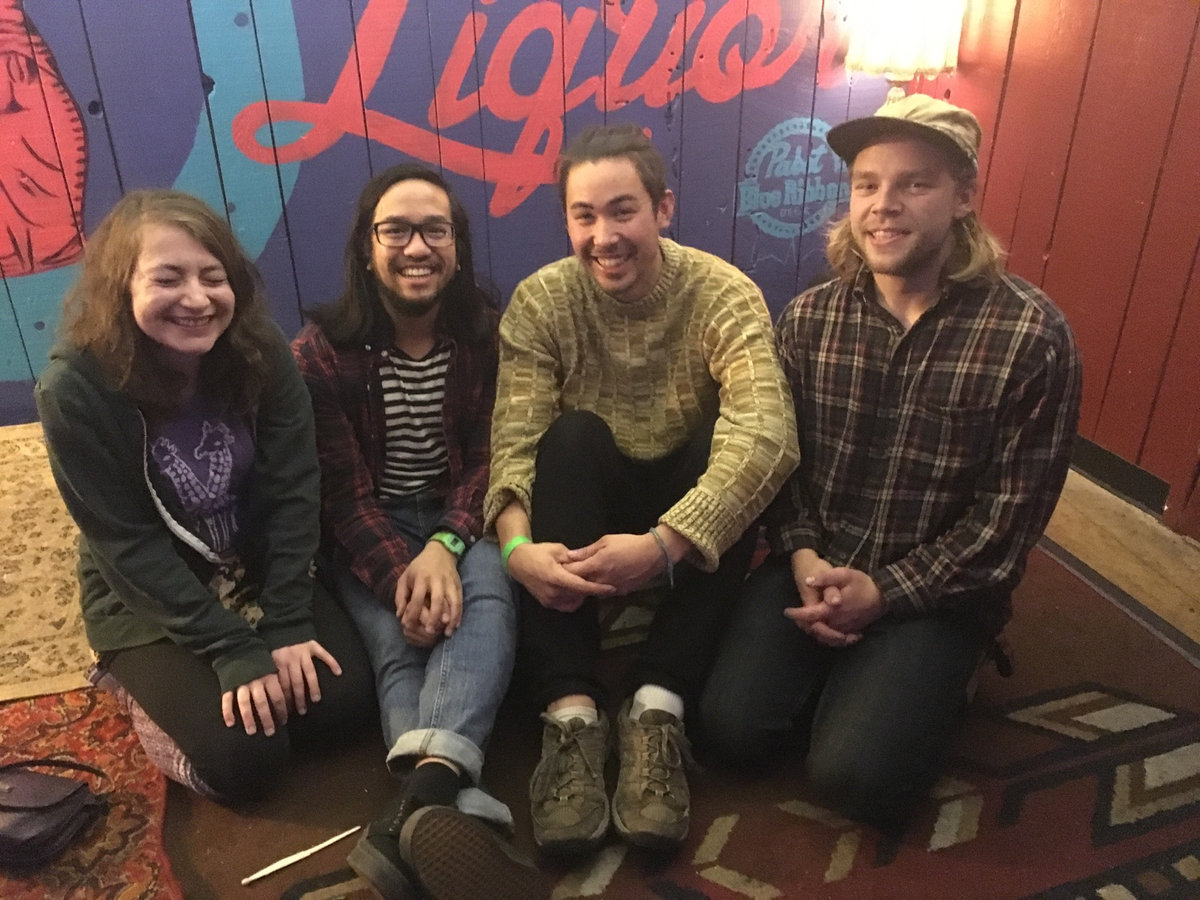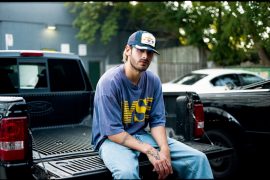Through unique soundscapes, emotionally stirring stories, and a nice pair of wool mittens, Jonah Yano made his debut album ‘souvenir’ an enduring one, and Atwood Magazine spoke to the artist to learn more on its inception.
— —
2019 proved to be fruitful, the song “nervous” and the EP of the same name fully introducing Jonah Yano as an artist with versatility, soul, and a penchant for soothing melodies that become etched in listeners’ minds. His dulcet vocals played off of the slick basslines and jazzy rhymes of the EP with extreme passion and sincerity. With one small collection of songs, Yano proved to be an artist to look out for. Now, with his debut souvenir, he shows that people were correct in doing so.
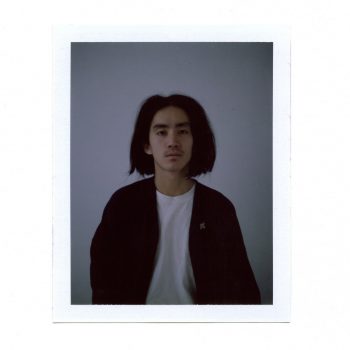
The Canada-based artist has taken what made nervous so alluring and managed to outdo it with what seems to be utter ease. For a debut album, souvenir perfectly encapsulates what makes Yano such a talent, showcasing the artistry behind his work in gorgeous detail with each song. Presented almost like an anthology, souvenir is an exploration of Yano’s personal family history, detailing his parents’ separation, the absence of Yano’s father growing up, and the moments in life leading to a long-awaited reunion. Album opener “poor me” immediately hits listeners with Yano’s soulful vocals, his incantations already setting a soothing atmosphere, a personal journey that will leave one aching yet filled with warmth all the same.
With “delicate,” the funk-inspired bassline adds tremendous texture into the album, and it acts as a perfect partner for Yano, both elevating each other and making a stronger song as a result. Stellar production and a tantalizing horn performance make “monarch” one of the albums most alluring. Its production is solid, and the vocal performance that has a slight echo in the synth-laced foreground makes it all the more intoxicating. Yano enters the acoustic territory with “stones (tokyo)” and manages to leave a lasting mark on another soundscape, proving his dynamism along with his lyrical wit as the song explores tender moments from his life.
A little bit of distortion and frantic drums carry “strawberry!” into new melodic territories, but Yano’s intoning joins on this voyage as well with vocal alterations occurring. A unique turn on the album, and one that is surprisingly infectious. That distortion makes its way into “what i can do to help,” a song whose placement feels odd at first, yet after the first listen, one would be hard-pressed not to want to experience it just one more time. It’s the final track, “shoes,” that carries with it some of the most emotive storytelling of 2020. A song recorded with his father whom he hadn’t seen in 15 years, this ballad sits in the heart, forever occupying a space that provides a constant stream of fervency and warmth. Its beauty is nonpareil, and it’s a perfect closure to an album brimming with heart and poise.
Creating a debut is no simple task, but Jonah Yano exceeded all expectations and created mastery. His process, however, is one of intrigue, and Atwood Magazine chatted with the artist ahead of the album’s release on June 21 via Innovative Leisure to dive deeper into how the album came to be, his methodologies behind music-making, and the mittens that got him through it all.
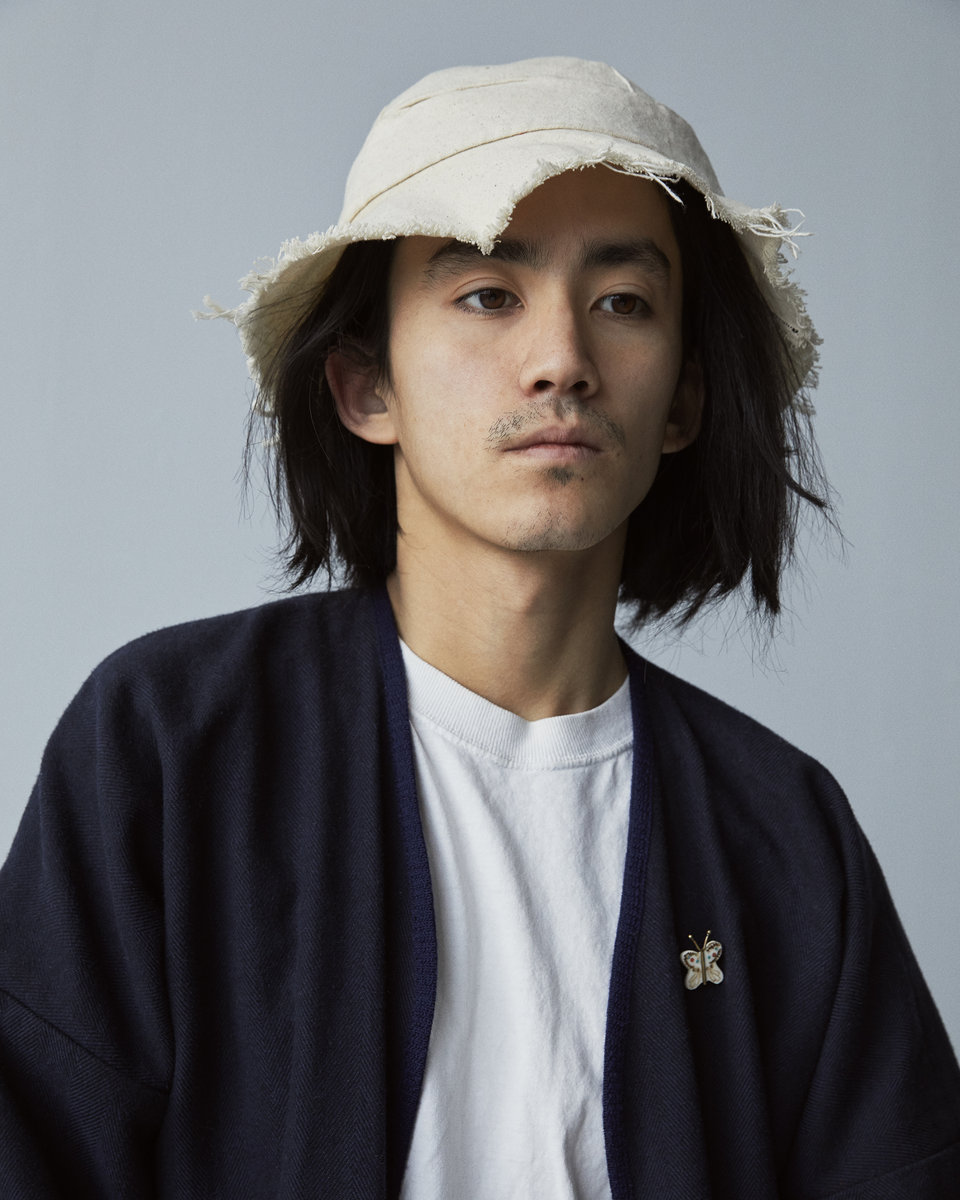
A CONVERSATION WITH JONAH YANO

Atwood Magazine: Congrats on the upcoming debut and for the latest single with BADBADNOTGOOD! You mentioned back when “nervous” released that it was only one of the tracks you were working on with them. Was “Goodbye Blue” one of those tracks?
Jonah Yano: Yeah, thanks, man! I appreciate that. And yeah, totally. That was made in sequence after “nervous,” so “Goodbye Blue” is a little over a year old now.
Your EP ‘nervous’ was a learning experience with how you went about the writing process. How do you feel the writing process for souvenir compared to nervous?
Jonah Yano: Writing wise, I would say the difference between the two would be kind of intention and direction because nervous was just kind of, like, six songs that I made. They didn’t really have any underlying themes. They were just songs that I had written in the process of songwriting, and, like, the practice of it. And I think souvenir differs because the songwriting has a sort of theme that ties it all together, being, you know, familial relations and cultural upbringing, understanding, existing in the diaspora, that kind of stuff. Yeah, I think that would be the main difference in the writing.
You mentioned before that the first track “poor me” is a “thank you” to your mom, “shoes” tying the knot with your father, and the songs in between as the rest of your life. When working on this album, did you want to make this sort of anthology of your life? And were you often thinking of specific people in your life to make this music for?
Jonah Yano: Oh totally. The kind of cataloging of time in that way, kind of came about after I’d written a few songs and kind of realized what I was making and what I was writing about. So when I – the decision to make it into a sort of like an anthology type album, kind of came as a, as a result of writing songs that fit into that narrative, initially, and then I just – I continued writing in that narrative once I kind of came to that realization.
For people, totally. So, for example, my mom is the perfect one. All the songs on this record are kind of written from perspectives of different people in my life and family. Primarily my mother and father. Yeah, my brother, my little brother who kinda had the same experiences as me regarding our father and stuff.
Grandparents too and yeah, I considered all those people, especially when the song “shoes” came about. I thought a lot about how I put myself in my family’s shoes a lot and like tried to listen from their perspective almost to kind of to gather what the song is and what it actually means because my interpretation of it is so, you know, kind of meaningless to everyone else’s interpretation of it. Yeah.
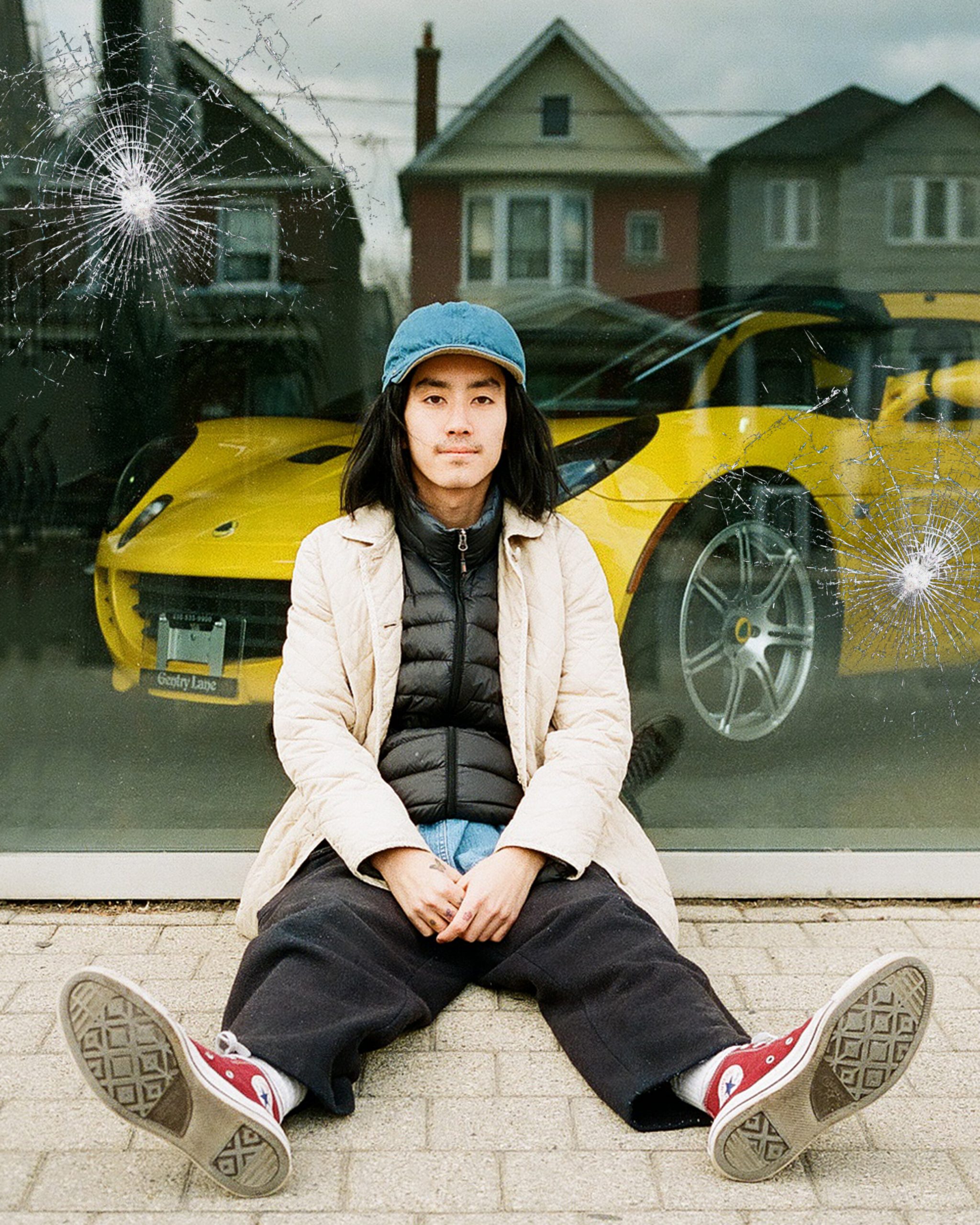
For the title, why souvenir? What makes that title encapsulate the album’s theme to you, if at all?
Jonah Yano: I got to souvenir because I really like to… I really like collecting little mementos. Like, a classic thing that I like to do is collect rocks, lots of people do that. I like to get rocks from little beaches I go through and stuff and keep them in a little pile at home and kind of attach them to things. And I thought that the title could also lend itself quite well to music. Because these songs are kind of stories I’ve collected along the way.
And they kind of serve as two veneers in that sense. Because when I listen back to them or look at the tracklist or something, I’m reminded of so much. Like, so much in my life, you know, and I thought it just made sense.
I love that metaphor and meaning behind it. It’s so nice.
Jonah Yano: Thank you, thank you! It took a while to land on but I’m quite happy that I got there.
Sonically, souvenir contains a litany of varying soundscapes. How did you approach the music-making for the debut? Was there a certain mood you wanted to express?
Jonah Yano: Hmm, I don’t think there was any type of specific sound or anything that I was trying to achieve. I think every song that I wrote for this is the kind of sound… the kind of sound it ended up having at the end with all of the final mixing is all just a product of what was going on around me and who I was making music with at the time, whether it was by myself or with an engineer or with collaborators. So I don’t think I specifically sought anything out. I think the songs found the sounds that they came to be, you know, in that way.
Songs like “delicate” with its rich basslines and “stones (tokyo)” with its soothing acoustic approach or even “what I can do to help” and it layered distortion all are unique songs in their own right, but they all, to me, have this emotional connection that makes them all still feel distinctly you. What was your mindset when making these songs?
Jonah Yano: I feel… The one thing that is unique to me is the as a musician is the words I have to say and the way my voice sounds. I don’t think I’m necessarily a virtuoso kind of musician in any specific instrument or sound. So when I put my voice to a song, I think I feel comfortable knowing… I feel like it’s my song when I can hear the words I’m saying and feel the way I’m saying. Anything else around the song is just a kind of decoration, supporting the main meat of what I’m trying to say.
And I think, back to what we were talking about before about the sounds kind of finding the song, I think the sounds that kind of attach themselves to these songs help get across those stories and things and lyrics I’m trying to think and say, and they sort of hold them up on their own individual little unique print together in like a little gallery or something, you know?
Listen: “delicate” – Jonah Yano
For sure! Lyrically as well you do a fantastic job of creating these windows into the stories you share. How do you approach it - do you typically do lyrics or the melodies first?
Jonah Yano: Um, I think a little bit of all of it. I like writing a lot, I really like writing, like poetry and journaling and little prose and things like that. So a lot of my lyrics kind of borrow from that and that method of writing. But also, a lot of it just kind of happens in the studio too, like in front of a microphone, kind of the melody and the words kind of come out at the same time as a scratch track or something and then, like, and then I’ll sit down with what I improvised and kind of form it into something more kind of cohesive and coherent.
But yeah, the writing process kind of is one of those two. It’s either borrowed from something I’ve already written down and kind of reinterpreted as song lyrics because, you know, like writing prose and poetry doesn’t always translate perfectly, especially when you’re trying to use specific melodies and the song sounds a certain way. And other ways to be the kind of in-studio improvisation kind of… kind of way or just with the instrument, sitting down writing the song and then producing around it after.
Now, “shoes” is one of the most beautiful and sincere songs I’ve listened to...
Jonah Yano: [Laughs] Ah, thanks, man. I really appreciate that.
With that being said, you seem to be strong-willed when it comes to being open and vulnerable with your music. Is creating and sharing your past and present through your music something you find easy, or do you have moments where you’re unsure emotionally on whether or not you want to share a piece of music?
Jonah Yano: I don’t think I have any hesitation in sharing very personal stories if I can relay them in a way that…. That is kind of… my understanding or my coming to understanding the circumstance. I think if, if I experienced some trauma in my life, and it was very raw, and I hadn’t sat with it and taking the time to understand it, I’m not sure I could feel comfortable telling that story like that.
So with a song like “shoes,” I’ve had 20 whatever years, 21 years to think about that. And I had, I’ve come to terms with that a long time ago, a long time ago. So it was very easy for me and felt very normal to tell that story and put that out there because I’ve already kind of gone past it. And in October when I went to see my dad, that was kind of like this cherry on top of the proverbial reconciliation cake [laughs].
I kind of felt victorious in my, in my trauma at that moment. So anything after that is so much easier. Putting out a song and a video about it, it’s so much easier than then dealing with the actual thing itself. So I think I’m quite happy to tell those stories. It helped…. It really helped me understand it, understand everything that I’m going through.
What draws you to channel such emotion in your music? I know recently you said that you’re just “a guy drinking various wines and laughing at stupid shit on YouTube” outside of music, so is there something that music provides you that other outlets, like you said poetry and prose, don’t?
Jonah Yano: Yeah, I think music…. People who make music and are practitioners of it kind of, in a different way, say the same thing I’m about to say about how there’s something you’re sort of looking to understand about how music makes you feel when you’re making music or playing music.
There’s no explanation to how it makes you feel to listen to or to express with. And I think that’s the thing that, that poetry or prose is missing, you know? It can be so literal, and like, very comprehensive in every sense. But I think in music, there’s still mystery. Even if you know all the theory and know what’s going on in every song, I think the very visceral feeling you get from music is so, you know, you can never really put your thumb on it. We can write about it all we want and we can talk about it all we want, but I think there’s, there’s just something unexplainable about it that makes it so special.
Listen: “shoes” – Jonah Yano
Staying on the topic of emotion, it feels apparent that you have an appreciation of incorporating the emotions and thoughts that go into life experiences. Is that something you think about when making music?
Jonah Yano: Yeah, totally! I think it’s all sort of an extension of how I feel about something or how I’m interpreting a situation. There’s very little subconscious creating in my music. I’m never like… Alright, sometimes I am, but rarely am I ever just letting go and letting the music guide me. I’m kind of like trying to guide the music through what I’m feeling, so I think in that sense it’s always at the forefront of my mind; what it is that I’m trying to understand, what it is I’m trying to say.
For souvenir, you were able to work with a wide variety of bands and artists alike like the returning BADBADNOTGOOD and Nono, but also new artists like Monsune. Did you have these specific artists in mind with whom you wanted to collaborate with for the album?
Jonah Yano: No, actually! These were all just people I’ve met along the way. I didn’t really reach out to anyone or anything. All those songs kind of just happened because those are people I’ve met and just happened to end up making something with some. I mean, I’m very, very fortunate. So happy that the people that worked on the record did. But yeah, it wasn’t really planned out or anything.
This is your first time collaborating with Monsune, so how did you initially meet and start working with him?
Jonah Yano: There’s a thing called Base Camp and it’s like a condensed kind of weekend sort of thing, and last February they did one in Calgary. They invited a bunch of Canadian musicians, myself included and Monsune included, to Calgary to the national Music Center for the weekend. And we just ended up hitting it off because we had already had some mutual friends and kind of knew each other’s music already.
The song “strawberry!” was actually started at the National Music Center with Monsune, and that was the beginning of our working relationship and friendship as well.
How does the music-making process differ for you when working with others compared to just yourself?
Jonah Yano: I really appreciate having someone to work with, and I also appreciate working alone, but the thing is, some of the things I appreciate about working with someone else’s is being able to see in real-time that there are so many different ways to approach music-making, you know? I think any practitioner of any craft can kind of get caught up in their, their comfortable process of making, and it’s really refreshing to just watch other people work and to work with other people.
You learn so many things you know, that you never would have thought of and seeing chord progressions you never would have considered or you are a sample you would never have thought to slip or chop something. Working with other people is so, so great. And the friendships formed along the way through music and art are so valuable and priceless, honestly.
And working alone, too, is also amazing. Kind of getting into that zone with yourself and really looking at your own eyes and in the mirror, so to speak. And It’s only you and it’s up to you to make every decision. I think that’s a super challenging thing and ultimately really gratifying to work through.
Listen: “strawberry!” -Jonah Yano
I love how passionate you are about collaboration. There are plenty of artists who really enjoy sticking with themselves, which is fine, but I feel it’s a nice trait to have when you enjoy working with others so much.
Jonah Yano: [Laughs] Thanks, man! I never really like thought about it as a trait but I do really trust in other people when they’re making music. I think that’s how I ended up with these songs sounding the way they did because I, you know, I do really like discussions over what decisions get made but I also believe just trusting other people to do the same thing because I can’t always be right and I don’t know everything, and so letting someone else kind of take the reins and the creative train for a bit really is just really nice to be a part of.
Compared to when you first started making music a few years ago, how do you feel you have developed as an artist and as a person?
Jonah Yano: Firstly, as an artist, I think I have really been able to take my time now with music-making, you know? When you first start, you have all these ideas and you want to get them all out and then you just start to hurry to share everything and you want to show off your, your new talent or, you know, your newfound passion, but now that I’ve been writing songs for a few years, and recording and stuff, I feel more comfortable taking time to let the ideas become something more special than the initial production and before leaving something that was quite loose and raw.
And as a person, I think songwriting, for me, became the pursuit of truth. Because being honest with yourself is so hard sometimes. And, and really, really facing matters of fact as they are. It’s kind of hard when they’re just plain emotions or plain English, you know? Songwriting really, really helped me understand what the matter of fact is, you know? I can really be honest with myself and open to understanding what a feeling is, as opposed to hiding from it or pretending it’s something else, you know.

As an aside, are you still a big fan of mittens?
Jonah Yano: Yeah, totally! [laughs] I’ve been rocking the same pair all winter. It’s like… this like white and black pair with snowflakes all over them and they did me good. They’re made of wool I think. Love a good pair of mittens. They’re so comfortable, so much better than gloves.
I’m just happy we share the same appreciation for them.
Jonah Yano: Oh, you’re a mittens guy?!
Absolutely! I mean, come on, they’re like socks for your hands.
Jonah Yano: Yeah, dude! Exactly! And imagine wearing toe socks all the time. No way! And then imagine your shoes being separated into toes? Come on.
Yeah, a leather glove is fine, but you can’t beat that comfort.
Jonah Yano: That’s what I’m saying!
Last question for you: Things in the world might be bleak right now, but what excites you most about the future of your career? Any directions, or new territories, you are looking forward to exploring?
Jonah Yano: Oh yeah. I’m really looking forward to, and who knows when this is gonna happen, but I’m… I played for, like, fans growing up and played to small groups of people here and there, but I’ve never really played my own show before where I’m like the headliner, you know? And I’m really, really looking forward to when I can do that.
I’m also really excited by the sort of new gold rush in digital media. And watching everyone frantically trying to figure out what it is that they can do to remain relevant in a newly digital world. I think we were all living from digitally before, but now it’s for artists… it’s like the only way we exist currently. So it’s interesting to just navigate that and I haven’t really found anything, personally, but, you know, it’s cool to see people experimenting.
— —
:: Pre-order souvenir ::
— — — —

Connect to Jonah Yano on
Twitter, Instagram
Discover new music on Atwood Magazine
? © Will Jivcoff
:: Stream Jonah Yano ::






